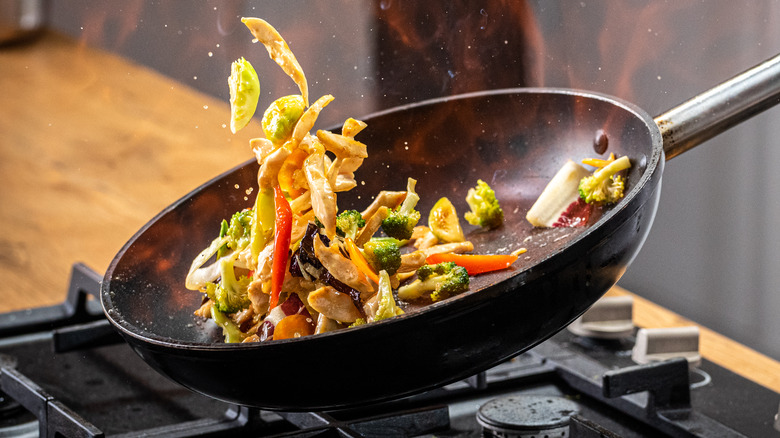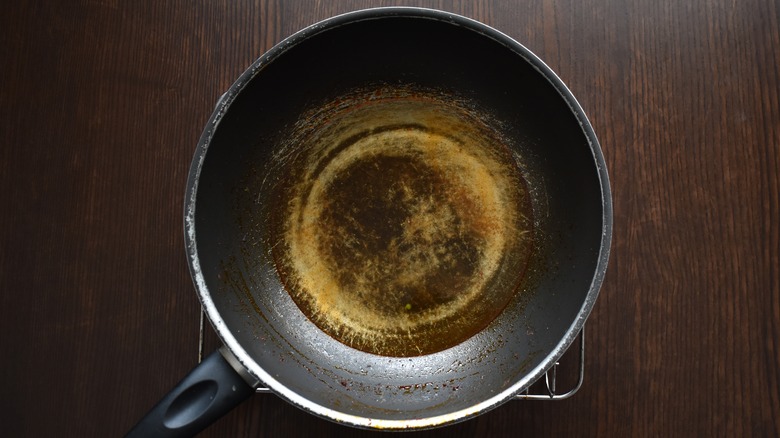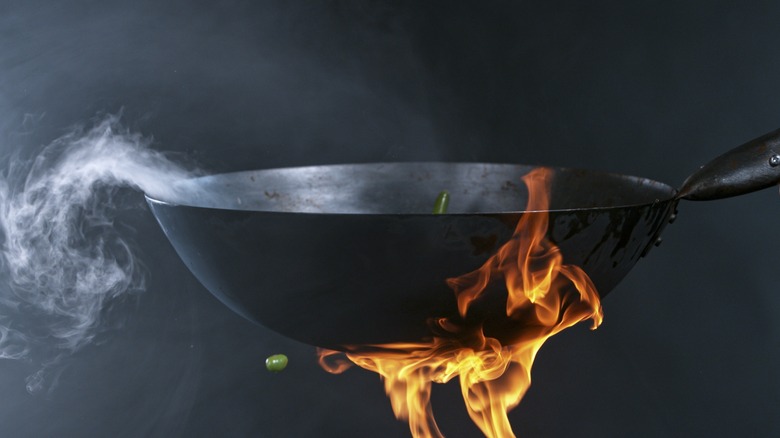The Reason You Should Steer Clear Of Cooking Acidic Dishes In A Wok
Woks are versatile and sturdy pieces of cookware. The best woks are built to be used directly on high heat, withstand scraping from metal utensils, and avoid rusting. Part of that durability comes from a wok's primary material — typically either carbon steel or cast iron — and part of it comes from its seasoned surface. However, that doesn't mean that even the best woks are indestructible. There is actually one common cooking element that can seriously impede your wok's ability to turn out flawless stir-fry, and even tarnish the taste of your food.
The culprit is acid. Foods that are highly acidic — such as tomatoes, vinegar, and citrus fruits — can seriously harm your wok. You should avoid cooking with too many of these ingredients for an extended period of time, otherwise you could risk losing one of your most resilient cooking tools. Knowing how acidic foods interact with your wok can tell you how to repair any damage they might inflict.
Acid damages the seasoning in pans
A well-maintained wok has a slick cooking surface that lets food move around easily without getting stuck. That smoothness is the result of the layer of oil that has been baked or cooked onto the wok, typically known as its seasoning. Other carbon-steel and cast-iron cookware such as skillets and Dutch ovens are similarly seasoned with neutral cooking oil, and they can be used for years without deteriorating or becoming sticky — as long as the seasoning layer is in place.
Acids from vinegar, citrus, or tomatoes can be harmful to woks because they have the ability to break down that seasoning layer. These foods won't destroy your wok's seasoning immediately, but if you use a lot of acidic ingredients in your stir-frys — or if you let them sit in your wok for a while after you're done cooking — they can erode the seasoning and expose the metal underneath. If you continue to cook with your wok after its seasoning is worn down, your wok could even begin to rust. Luckily, you can scrub off small amounts of rust and prevent them from returning by wiping the areas with a little oil.
How to reseason your wok
If you've been cooking acidic ingredients in your wok and see that the seasoning is wearing away, know that there's hope. The simple way to fix your wok after it's been damaged by acid is to reseason it.
To reseason your wok, start by removing any stuck-on food either by scraping it away with a wooden spatula or scrubbing it off with a paper towel and coarse sea salt. Then wipe the wok dry and pour in a small amount of neutral oil with a high smoke point, such as grapeseed or canola oil. Using another paper towel, rub this oil in a thin layer around the inside and outside of the wok, then heat the wok until the oil begins to smoke.
If your wok is entirely metal, you can do this in your oven. If your wok has wooden handles, you'll need to do this on your stovetop by moving the wok around the gas burner to make sure the oil is heated evenly. Once the oil is cooked on, let your wok cool, and if you want, rub it with another light coat of oil before putting it away. Your wok will then be ready to use again. Acidic ingredients add a lot of great flavor to a stir-fry, so you don't have to avoid them entirely. Just try to use them in moderation, and reseason your wok when needed.


